Search Images
Browse Content (p. 183)

Image
Three Pieces of the Antikythera Mechanism
The Antikythera Mechanism (also known as the Antikythera Device), dated to the late 2nd century/early 1st century BCE (roughly 205-60 BCE) is understood as the world's first analogue computer.
National Archaeological Museum, Athens.
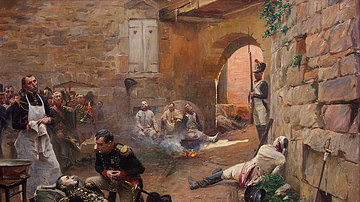
Image
Marshal Lannes is Mortally Wounded
After having his knee smashed by a cannonball during the Battle of Aspern-Essling (21-22 May 1809), French Marshal Jean Lannes lies mortally wounded, his left leg amputated. Here he is visited by Emperor Napoleon I, who considered Lannes...
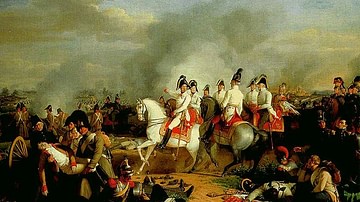
Image
Archduke Charles of Austria at the Battle of Aspern-Essling, May 1809
Archduke Charles of Austria (center) issues orders during the Battle of Aspern-Essling (21-22 May 1809). At Aspern-Essling, Archduke Charles becomes the first European military commander to score a major victory against Napoleon himself...
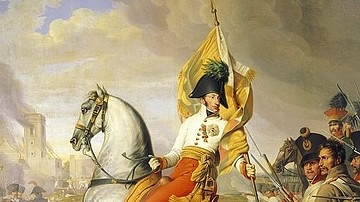
Image
Archduke Charles Leads a Charge at the Battle of Aspern-Essling
Archduke Charles of Austria leads a pivotal charge during the Battle of Aspern-Essling (21-22 May 1809) that contributes to the Austrian victory. Painting by Johann Peter Krafft, circa early 19th century. Heeresgeschichtliches Museum...
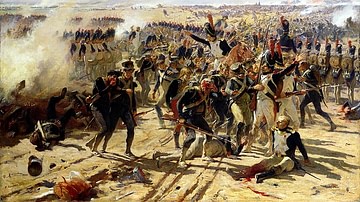
Image
Battle of Aspern-Essling, May 1809
The Battle of Aspern-Essling, 21-22 May 1809, between French and Austrian armies. The battle resulted in an Austrian victory and marked Napoleon's first major battlefield defeat in a decade. Oil on canvas painting by Fernand Cormon...
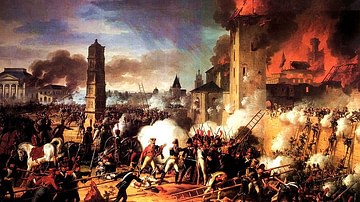
Image
Storming of Ratisbon, April 1809
Marshal Jean Lannes leads the French troops in the storming of the citadel of Ratisbon on 23 April 1809, during the War of the Fifth Coalition (1809). Painting by Charles Thévenin, 1810.
Palace of Versailles.
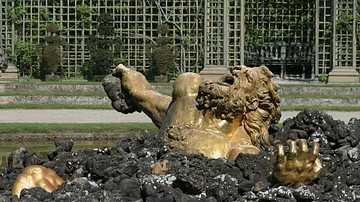
Image
Gilt-bronze Enceladus By Gaspar Mercy
The Giant Enceladus, gilt-bronze statue by Gaspar Mercy.
Bosquet de l'Encélade (Gardens of Versailles).
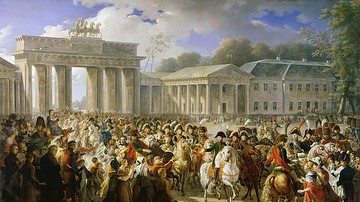
Image
Napoleon Entering Berlin, 27 October 1806
Napoleon enters Berlin after defeating the Prussian army at the Battle of Jena-Auerstedt, oil on canvas painting by Charles Meynier, 1810.
Palace of Versailles.

Image
Death of Cato of Utica
The Death of Cato of Utica, oil on canvas by Jean-Paul Laurens, 1863.
Musée des Augustins, Toulouse.
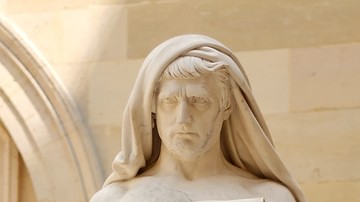
Image
Cato of Utica
Cato of Utica reading the Phaedo before committing suicide, Carrara marble sculpture by Jean-Baptiste Roman and François Rude, commissioned by King Louis-Philippe in 1832, finished in 1840.
Louvre, Paris.